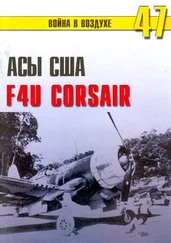It was awkward to negotiate the slope of the gangplank without snagging their chains, but, once on land, Hector and his companions shuffled in the direction the man in the waistcoat indicated – towards an enormous building which dominated the south-eastern corner of the waterfront. Its walls were painted blue and decorated with yellow motifs which Hector recognised as the fleur-de-lis, the symbol of the French king. Another huge yellow fleur-de-lis surmounted the great dome which rose from the interior of the building. Smells of pitch and tar, of raw timber and hot metal, and the sounds of hammering and sawing told Hector that they were approaching a vast Arsenal and shipyard.
‘Allez! Allez!’ Their drover was shouting at them to go around the building and approach it on the landward side. As they turned the corner, Hector saw ahead a sight he would never forget. Coming down the busy street which led from the heart of the city was a column of about fifty men. They were dirty and dishevelled, with long matted hair and unkempt beards. Most were dressed in rags, and some wore broken boots or clogs while the rest were barefoot. They moved slowly as if exhausted. All of them wore metal collars, and from each collar a light chain joined each man to a central heavier chain, so that the entire column was linked together as a single unit which made a mournful clanking sound as it limped forward. At the head of the column rode an overseer mounted on a bay horse, and on each side were more mounted men, clearly guards, equipped with bullwhips. Three or four carts brought up the rear of the column and – to Hector’s astonishment – several desperate-looking women were keeping pace, occasionally darting into the column to speak to one or other of the chained gang.
‘Halte-là!’ The leather waistcoat shouted at Hector and his companions to stand where they were and allow the column to pass in front of them. As Hector and Dan looked on, a double gate in the Arsenal’s yellow outer wall swung open to receive the long, sad file. Led by the mounted officer, the column began to be swallowed up, though the women were prevented from entering. Uniformed sentries blocked them from going any further. The women beseeched and begged, but the soldiers firmly held their muskets crosswise as a barrier, holding them back. One tearful woman fell to the ground, keening in anguish.
‘Allez! Allez!’ The leather waistcoat was bawling urgently at his charges to move forward and enter the Arsenal before the gates were shut and barred. Once inside they found themselves in a large open parade ground where the prisoners of the column were standing meekly. Guards were removing the iron neck collars, and then dividing the prisoners into small batches. As each batch formed up, it was escorted to what looked like the main administration building and taken inside. Several minutes would pass, and then a guard appeared and shepherded away another batch of prisoners. Eventually all the prisoners had been removed, and the square was empty except for Hector, Dan and the odjaks. Their escort in the leather waistcoat had walked away, ignoring them. Moments later a guard came to the open door and beckoned to Hector, Dan and Irgun.
They were directed into a large whitewashed room where bent over a table was some sort of official dressed in an ill-fitting black coat with tarnished silver buttons. His pen was poised over a ledger. ‘Nom?’ he enquired curtly, without even raising his head which, Hector observed, was flecked with specks of dandruff. Clearly the official was a receiving clerk and had mistaken them for another batch of prisoners from the column. Grateful to the friars who had taught him French Hector replied, ‘Lynch, Hector.’
The clerk scratched down the information in the ledger. ‘The crime of which you are condemned?’
‘No crime,’ said Hector.
Angrily, the clerk looked up and saw the three prisoners from Izzet Darya standing in front of him. ‘Where are you from?’ he demanded. ‘You are not with the chain.’
‘We are from the galley Izzet Darya .’
At the mention of the galley, Hector thought he saw a glimmer of recognition in the official’s eyes. ‘And your name?’ he asked Dan. The Miskito understood what was wanted, and answered simply ‘Dan’. Again the pen scratched across the surface of the ledger. Next it was the turn of the odjak but he did not answer, and stood silent and staring down at his interrogator from his great height. ‘He does not comprehend,’ Hector intervened.
‘Then you tell me what he is called.’
‘His name is Irgun.’
‘Any documents to confirm your identities?’ the clerk said irritably.
‘No.’
‘Then I shall put you all down as Turks. That will be all,’ and he began to fill in a column he had left blank in the ledger. ‘Guards! Uncouple that big Turk and put him with his fellows where he belongs. Take the other two away, take off the linking chain, and keep them separate from the rest. Tomorrow they will be assigned to their duties. And if there are any more Turks outside, you can conduct them to their cells without bothering me with the details.’
The guards led Hector and Dan down a long corridor, across a courtyard, and through a series of doors which were unlocked and then relocked, and finally left them in a cell some twenty feet by twenty feet. It was unfurnished except for a layer of damp straw, two benches and a bucket that was evidently being used as a latrine. Stretched out on one of the benches was a tough-looking man with close-cropped dark hair who sat up as the cell door slammed behind them and regarded them with distaste.
‘How come they put you in with me?’ He spoke French with a strong accent. At some time his nose had been badly broken.
‘What’s that?’
‘You’re Turks.’
‘No. I’m from Ireland, and Dan here is from the Caribees.’
The broken-nose man hawked and spat in the straw. ‘Then how come he’s wearing a leg ring? Anyhow Turks, Moors, slaves – doesn’t matter which. They all mean the same thing if you’re condemned to the oar. And if you’re Irish, how come you’re here?’
‘We were in the bagnio in Algiers, and converted. Now we’re treated as renegades.’
‘You’re lucky they didn’t hang you the instant they caught you. That’s King Louis’s usual way of dealing with renegades. They must be in too much need of oarsmen to give you the long drop.’
‘Who are they?’
‘The King’s Galley Corps. I’ve been here before, and that’s why they’re keeping me apart from the others. To stop me tipping them off about what’s to come and how they can dodge the worst.’
‘What others?’
The man nodded towards a small barred window, set high in the wall. Hector stepped up on the bench, took a grip on the bars and hauled himself up so he could look out. He was staring down into a large hall, as bare and bleak as his own cell. Seated or lying on its straw were the crowd of disconsolate prisoners who had just arrived with the chain column.
‘I was with that lot on the stroll from Paris,’ explained the fellow prisoner disdainfully as Hector lowered himself back down. ‘Took us nearly a month, and more than half a dozen died on the way. The argousins . . .’ Seeing that Hector did not know who he meant, he explained, ‘The argousins are the convict-warders. They weren’t any worse than usual, but that thieving bastard of a comite who was in charge had done the usual corrupt deal with the victuallers. We were served half rations, and nearly starved.’
‘If you’re not a slave, what are you here for?’
The man laughed without mirth, and turned his face to one side, exposing his cheek. ‘See here.’ Beneath the grime Hector could just make out the letters GAL marked in the skin. ‘Know what that means?’
Читать дальше








